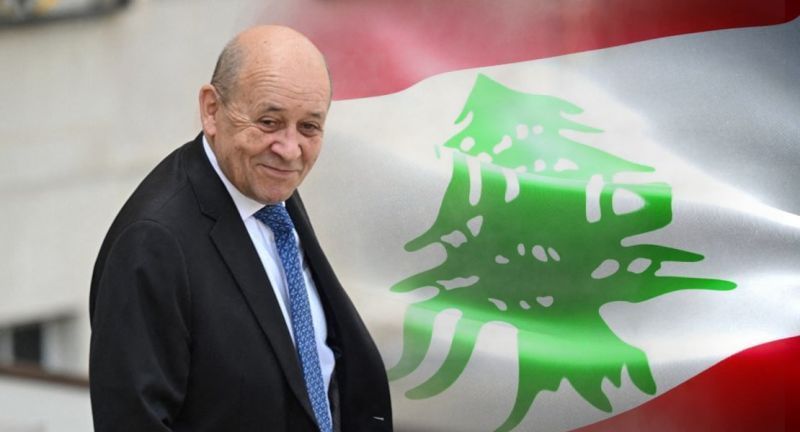
In an interview with LBCI, on Thursday, Jean-Yves Le Drian, French Special Envoy to Lebanon, lauded the efforts of the Lebanese officials in putting the country back on the path to recovery. However, he cautioned that there is still much to be done and warned that Lebanon risks missing the opportunity as international attention increasingly shifts toward Syria.
Le Drian voiced his support for Joseph Aoun's election as Lebanon's president, calling it a defining "Lebanese moment" and a clear indication of the Lebanese people's renewed confidence.
He emphasized that Lebanon, "after years of stagnation and inefficiency, is finally beginning to lay the foundations of a functional state," even though "it is not yet running at full speed." The French envoy also noted that Lebanon is "once again recognized and respected internationally."
He praised the current government, describing it as "coherent, homogeneous, and united," and pointed to the fact that several reforms have already been initiated "with full transparency." "Lebanon is moving forward, even though it nearly perished," he remarked.
Reforms Must Continue
However, Le Drian acknowledged that the challenges ahead remain significant. He pointed out that many issues are still "on the table" and stressed that Lebanon must continue its reform process without delay. "Lebanon's moment must not be overtaken by a Syrian moment," he warned, highlighting that international attention is "shifting from Lebanon to Syria."
Despite this, Le Drian believes that the changes in Syria could be beneficial for Lebanon, as long as the country seizes the opportunities that arise. He welcomed the opening of an extraordinary session of Lebanon's parliament, viewing it as a positive development. "Lebanon must relentlessly pursue the reform process," he stressed, noting the critical importance of regaining the trust of international donors and ensuring a favorable environment for investment.
Le Drian addressed the issue of Lebanon's recent placement on the European Commission's blacklist, which he views as further proof of the urgency for reforms. He emphasized that turning to the IMF is a key condition for Lebanon's recovery, noting that past international conferences in support of Lebanon failed primarily due to the country's lack of substantial reforms.
He suggested that the next major opportunity for Lebanon to demonstrate its resilience would come in the autumn. "It will be an important chance for Lebanon to prove it can overcome the economic and political challenges it continues to face," he said.
Security and Disarmament
On the issue of reconstruction in southern Lebanon, Le Drian linked the success of rebuilding efforts to the restoration of security in the region. He reiterated the importance of granting the monopoly on weapons to the Lebanese state, specifically the Lebanese army, in order to ensure effective reconstruction. "Only the Lebanese army should be in charge of this mission," he insisted.
He reaffirmed France's full support for President Aoun's efforts toward a monopoly on arms, describing it as a policy that "combines firmness and caution." "This is exactly what should characterize the role of the president," the French envoy added, stressing that it is crucial for Lebanon not to miss this political and security moment.
In this context, Le Drian also addressed UN Security Council Resolution 1701, which he sees as an essential framework for maintaining stability and security in southern Lebanon. He emphasized the importance of respecting the ceasefire agreement "in all its dimensions" and clarified that France supports the renewal of the UNIFIL mandate. "If this mandate is questioned, the implementation of Resolution 1701 would be at risk, potentially leading to the outbreak of war," he warned.
Le Drian also expressed his hope that Gulf countries would partner with Lebanon in its recovery efforts. He noted that while there are occasional divergences between Paris, Washington, and Riyadh, all three parties agree on the importance of preserving Lebanon's territorial integrity and supporting its sovereignty.



Comments